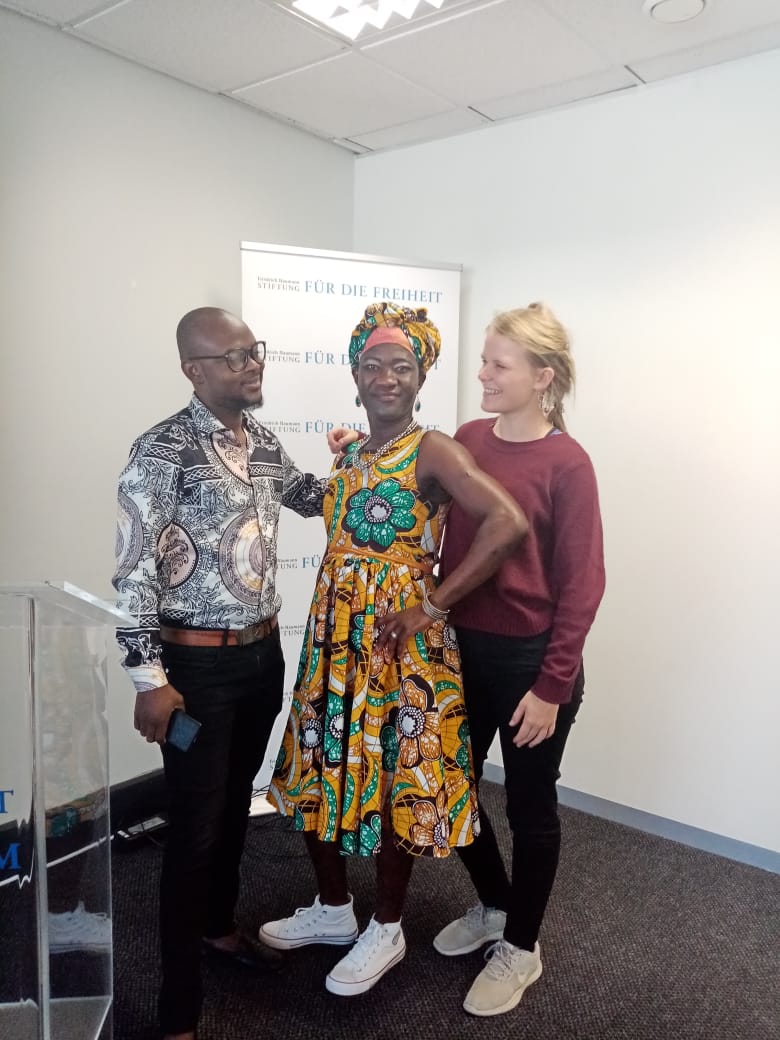LGBTQI+ Refugees in Africa
LGBTQI+ Migrants Speak Out at a Recent Human Rights and Leadership Workshop

Homophobia is a serious issue all across Africa. In many countries, LGBTQI+ people face constant harassment and harsh punishments, ranging from fines and imprisonments to death, solely for expressing their sexual orientation or gender identity. This unjust reality in countries like Uganda to Malawi has led to an influx of sexual refugees fleeing to South Africa, one of the progressive countries that do grant refugee status on the basis of sexual orientation.
There are a large number of ‘sexual refugees’ in South Africa and they are among the most marginalised and discriminated social groups here. However, despite South Africa’s official position, the asylum application process is fraught with problems and a lack of transparency, and many LGBTQI+ refugees are being turned away unjustly. Moreover, those who are granted status still often face discrimination and harassment in their new communities in South Africa. When xenophobia is compounded with homophobia, it leaves many gay and transgender immigrants in conditions, not unlike those in the countries they fled in the first place. To support their living, refugees often engage as sex workers, failing to find employment due to discrimination and documentation problems. Often, LGBTQI+ refugees are not aware of their rights in South Africa, a knowledge that may alter their lives drastically.
Through the workshop programme, PASSOP in partnership with FNF Africa advocates for the rights of Lesbian, Gay, Bisexual, Transgender and Intersex (LGBTQI+) asylum-seekers and refugees assist them with paralegal advice and empowers this social group by building a support network. PASSOP, with support from FNF Africa, further hopes to draw the LGBTQI+ community tighter together to promote understanding and tolerance within their communities in order to ensure their safety and integration. We aim to build up a solidarity network to unite LGBTQI+ refugees, asylum-seekers and immigrants to provide them with outlets for emotional support and counselling.
The hope is that the programme will help to empower the refugees and asylum seekers to engage in gay refugee rights activism, educate them about their rights, so that they can share their knowledge within their own communities.
In total, eight LGBTI immigrants from Zimbabwe, Malawi, Kenya and Tanzania participated in the workshop. There were vivid discussions amongst the participants. Transgender participants reported to experience different human rights violations compared to homosexuals. Communal workshop outcomes are dividable into three major components, namely (1) access to knowledge, (2) networking, (3) safe space.
Access to Knowledge
All participants learnt about new laws in the workshop. More importantly, however, was how they could apply these laws. For this purpose, the distinctive laws were linked to Cape Town based organisations that offer support if people are violated in their rights.
-
- Health and Medication: Health for Men
- Papers and Status: PASSOP
- Counselling: Triangle Project
- English Skills: Scalabrini Centre
Concluding, the participant successfully learnt about the content of human rights, and how to enforce them.
Networking
The workshop further supported networking purposes within the participants’ communities. As people from Zimbabwe, Malawi and Kenya joined the workshop, they could get to know each other, understand where they face similar and different struggles.
To strengthen the community is an important goal as a united LGBTQI+ community serves advocacy purposes. Participants from more diverse backgrounds can go back to their communities and share the acquired knowledge with their peers. Diversified participants therefore guarantee a greater network outside the workshop walls. Moreover, it builds up a support system for the people themselves. Although people might have different social and cultural backgrounds, they may relate in the treatment they face and share how they tackle discrimination.
Safe Space
The setting, surroundings and nature of the workshop was created with the goal to offer a safe space to participants. A safe space enables to share experiences and feelings without having to fear to be judged or looked down upon. This goal was successfully established. While some participants were rather shy in the beginning, they were encouraged to speak up without pressure. The participants respected one another, listened and did not interrupt. During the presentation activity, every participant seemed to have felt comfortable presenting. The tea and the generous lunch were valued times to have informal conversations and share personal stories apart from human rights violations.